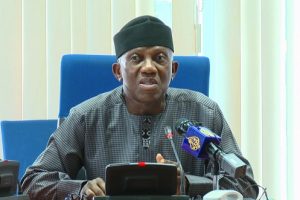BY FITSUM GETACHEW
We are now moving into a crucial election season and all the talk of the media is nowadays about nothing else but about this event. And for good reasons because the election this year is like no other we had in the past. This is so because of a number of significant developments that matured over the past three years.
First of all this election is supposed to be the freest we ever had before without the overwhelming influence of the former parties, the TPLF dominated EPRDF.
We know that all the previous five elections had their own pattern and in most cases the results were taken for granted; surprises never had any chances as they were not conceived nor admitted. The entire process was clearly prepared in a way that this contingency does not materialize.
All the indications on the road to the election showed that there were no preparations for an eventual defeat of the incumbent and hence no so called opposition party or leader could have any realistic hope of winning the election. The incumbent never showed any doubts about defeat either!
The only election that went arguably close enough to fulfilling the major requirements of any such election was the one held in 2005. The incumbent then was faced at least for a while with an unexpected eventual loss of power.
But soon it used its overwhelming security and law enforcement forces to put things to the pre election status, and this with significant costs. Many of us remember how things actually went.
Elections carried out in true democracies do not always have results taken for granted. In fact there are opinion polls regularly taken so that they could lead the electorate and the contests as well a certain anticipation of expectations.
This is so because the process takes place in a free and fair and most of all transparent manner, based on policies of the parties, the thoughts they publicize well to the audience with the rallies, the debates, the exposure with the media etc.
In many instances the real election season lasts a few intense months. The other preceding periods are used by the parties to introduce themselves and their programs. They organize and prepare their candidates. They also figure out how to attract the attention and trust of voters so that they secure their voices.
In democracies everything is viewed from a stand point of elections because it is that mechanism that keeps them alive! Whatever they do even outside the election period affects both positively as well as negatively in election seasons.
Each party has its fair share of media exposure and not like we used to have here with the incumbent having the lion’s share of the media space besides of course the various news updates that refer to the ‘achievements’ of the government and party.
Here, there is a dangerous mix between government and party and that is what many contesting political parties are seen protesting about. They are often heard complaining that the incumbent takes undue advantage when it comes to the usage of the public media.
What is more, the government is also accused of abusing public resources to promote its image which amounts to unfair advantage, unfair competition which in real democracies are not tolerated. In fact it could have negative repercussions at the polls. People are sensitive about these things and the usual practice has been doing away with such irregularities during election seasons.
Another huge factor in this election is the fact that there have been some significant reforms carried out by the ruling party. However, there are critics who have a different view on this issue.
They argue that the newly formed Prosperity Party is a slightly updated copy of the old EPRDF, minus TPLF. They also allege the existence of indications of some increased influence by narrow nationalist elements who still insist strictly following ‘discredited and not up to the times constitution’ that was meant to implement the crooked policies of TPLF and its affiliates.
There is a general consensus that the constitution was conceived and carved by the TPLF in the most convenient manner to realize its dream of dividing and ruling the country by disseminating the rhetoric of divisive politics. It focused on differences rather than common bonds and similarities among Ethiopians as a nation.
Playing one ethnic group against another and creating animosities by digging into old and forgotten rivalries have been among the strategies used. Many exaggerations or even outfront lies were fabricated and peddled by the ruling party trying to convince people that their party stood for the freedom of peoples which we discovered was not the case.
Every one now has a better understanding of the old system and they can make their own considerations and conclusions. There was a serious and protracted attempt to break down the country in to pieces creating states in which one region could be overwhelming others.
Those who meticulously studied the history of these political parties say that they were prepared on purpose to perpetuate their dominion subjecting the large masses to their whims and caprices.
The elections that were carried out in the past had this overall mission and it was intended to be implemented over a long term preparation. Fortunately, those who were contrary to such ‘devilish’ intent could now be less worried about such eventuality although there is some skepticism over what may come next.
In any case, this year’s election will be expected to be better than all those that preceded it for a number of reasons. The first factor is definitely the fact that some key institutions have been reformed. Look at the National Electoral Board (NEBE), look at the Ethiopian Human Rights Commission, look at the new way of posturing of the Prosperity Party.
We constantly hear that this is not about winning for any party but about carrying out the election in a fair, free and transparent manner. They say it is about rectifying the system and make it more credible and reassuring. It is about allowing people make their pondered and well informed choices among all those that have been legally registered and recognized by the NEBE.
Unlike during the previous elections, this one has allowed the once banned political parties and political personalities who used to live in exile to take part in the political discourse. This is definitely a major milestone in our politics. This may be a good opportunity to have valid and legal influence on the affairs of the country without blindly accusing the system of being oppressive and discriminatory, staying segregated or banned.
Of course no one has the pretence to say that this election will be the most perfect imaginable; or that it will all of a sudden help resolve all the perennial problems of the country. This would be not only naïve but also dangerous because the eventual disappointment could result in fierce disputes etc.
The best prospect must be that the election will be carried out in a smooth and transparent manner and there will not be any irreconcilable differences and disputes among the contestants. Debates will hopefully be held in an open setting and parties will have the opportunity to make their case for a realizable and realistic policies, not promise towers in the sky that are never realized! False expectations are dangerous because taking into consideration that seventy per cent of the population is composed of youths, one can hardly get away disappointing them!
What everyone who looks forward to this election fears is the negative campaigning that parties usually carry out against their rivals. With the advent of widespread social media, this becomes even more toxic and dangerous! Talking badly about the other competitors would not help earn votes from constituencies instead of presenting in good detail the policy choices for the betterment of the people of Ethiopia.
Discrediting others and ‘character assassination’ has been to a certain extent the main features of Ethiopian political parties in the past. I think people have had enough of that.
This is not to any one’s advantage and it could only lead to fierce rivalry that could get toxic and result only in encouraging violence among cadres and supporters of different political parties.
Violence will be the one most important thing that needs to be avoided at all cost, not only in the pre-election period, but also during the election day and in the post-election scenario when the results begin to transpire.
That is why it was fine to see that ample preparations have been underway to prevent these ugly things from happening and that the government has been promising that it will do everything within its capacity to hold these elections under the most peaceful and transparent conditions.
The role of the reformed NEBE will be key. The role of the reformed judiciary will be crucial. But the role of political parties and their leaders is also pivotal because they are capable of making or unmaking the country! It will be a test of their maturity and sense of responsibility.
Despite the voices of some who still insist that the election should not be carried out under the current circumstances (with various critical issues, not least security and sovereignty issues creating extra burden to the economy of the country) engaging in elections just for the sake of carrying it out would be inappropriate.
On the other end, there are those who maintain that any extra prolongation of the elections would result in de-legitimization of the incumbent even further than it was already accused of when it decided to postpone it from 2020 to 2021 owing to the Covid pandemic.
There are fears that any more prolongation of the election could further destabilize the country and all those who were calling for the regular holding of the elections will present a new challenge and even the international community would not hesitate to make its voice heard influencing the capacity of the nation to secure grants, obtain assistance from abroad and try and survive the economic crisis in which it finds itself.
It could look a dilemma but if we consider that the glass is half full rather than half empty, we could have positive outcomes from the upcoming elections. In fact we have to, because the alternatives are not bright.
The Ethiopian Herald March 3/2021



